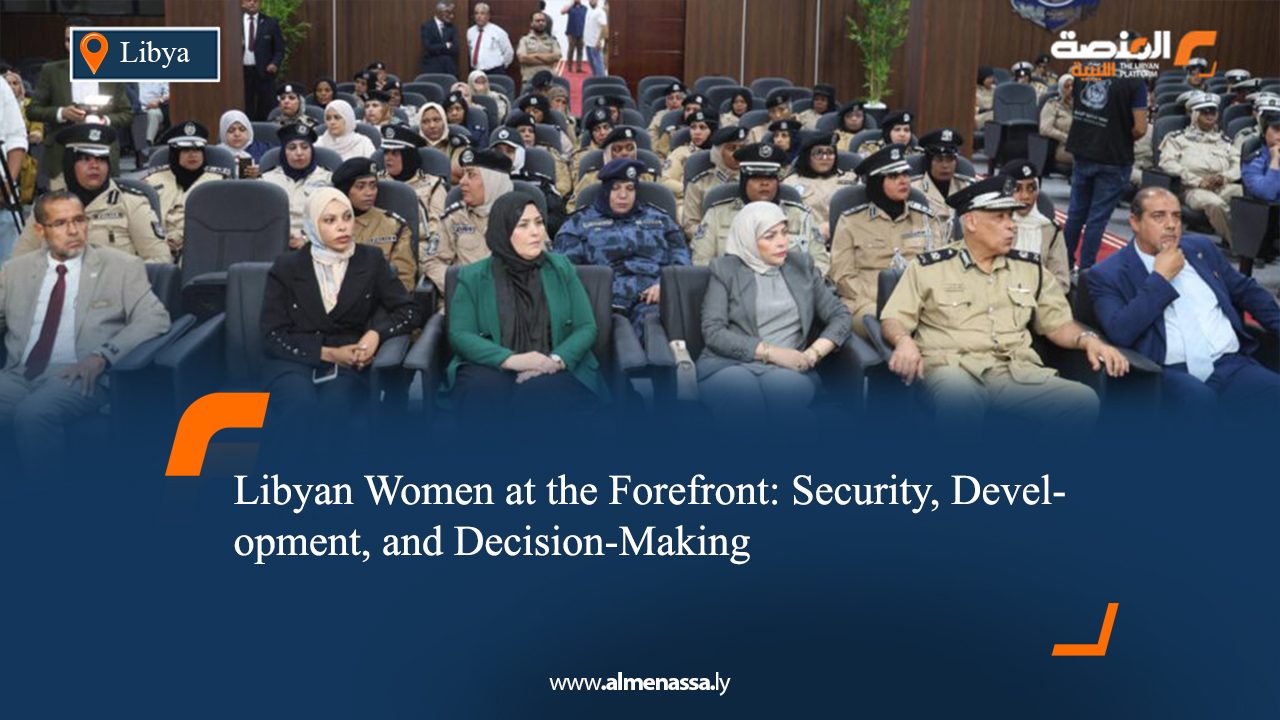Libya is witnessing a growing momentum around women’s empowerment, with renewed efforts to integrate women into state institutions and elevate their role in public life. Recent initiatives by both the Government of National Unity and the Libyan government underscore a shared commitment to making women central to national development and security reform.
Security Sector Inclusion
In Benghazi, the Ministry of State for Women’s Affairs, in collaboration with the Ministry of Interior, hosted a dialogue session under the banner “Empowering Women in the Interior Ministry to Strengthen Community Partnership.” The event highlighted the importance of female participation in the security sector—a domain traditionally dominated by men.
Parliamentarian Intissar Shanib, head of the Women and Children Committee, emphasized that empowering women in security institutions reflects a genuine will to advance society and offers future generations role models in national service. Minister Intissar Abboud echoed this sentiment, declaring that women’s inclusion in the security apparatus is not a supplementary choice but a national necessity. She pledged to work with the Interior Ministry to develop joint training programs aimed at placing women in leadership roles.
Brigadier General Jalal Al-Shuwaidi, Director of Public Relations and International Cooperation at the Interior Ministry, stressed the need to open space for qualified women in all areas of security work. He affirmed that women can be instrumental in modernizing the security system if given the proper support.
Celebrating Women’s Contributions
In Zuwara, Minister Horiya Al-Tarmal of the Government of National Unity participated in a session organized by the Inspiring Woman Award, which showcased successful female experiences in both administrative and security fields. The award was praised as a national platform that recognizes women’s achievements and documents their contributions to Libya’s development.
Al-Tarmal described the award as a reflection of genuine belief in women’s capabilities and thanked its founder, Salah Al-Jarmawi, and the organizing team for their efforts. She also commended the Libyan Women’s Union for its grassroots initiatives, which she said embody democratic values and reinforce women’s presence in public life.
Women in Decision-Making
The Libyan Women’s Union has recently launched a series of workshops, awareness campaigns, and forums aimed at boosting women’s participation in electoral processes as both candidates and voters. These efforts position Libyan women as essential partners in state-building and policymaking.
Al-Tarmal noted that the Union’s work represents a pivotal chapter in the struggle for women’s political and social rights, affirming that empowerment is not a slogan but a lived reality.
Toward Tangible Change
While the rhetoric around women’s empowerment is gaining traction, the challenge remains to translate these initiatives into lasting institutional change. The events and declarations of support are promising—but the true measure lies in whether these efforts become embedded in Libya’s social and political fabric.


